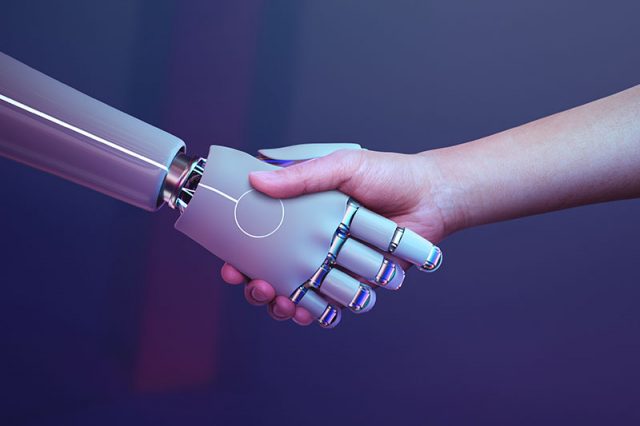Artificial intelligence (AI) does not need to be a bad thing.
A multinational technology firm shared how this can be integrated into one’s work life without compromising integrity.
Microsoft is among the companies at the forefront of AI technology, having released a chatbot as early as 2015 named “Tay.”
Fast forward to 2023 and the tech giant has already seamlessly incorporated AI into its services, making it easier and more convenient for people in the digital age.
These include Bing, an AI-powered search engine in its web browser Microsft Edge in which users can get answers from the internet, create written content with assistance, gather ideas for activities, and more.
Last March, the tech giant introduced the Microsoft 365 Copilot which combines large language models with the user’s data in Microsoft Graph and Microsft 365 apps to turn their words into a powerful productivity tool.
Copilot works alongside the user and is embedded in everyday Microsft 365 apps like Word, Excel, PowerPoint, Outlook, and Teams.
Some of the things it can do are the following:
Create a first draft that the user can edit and iterate on in Word, summarize long email threads and draft suggested replies in Outlook, and summarize key points and suggest action items in Teams, among others.
Based on the 2023 Microsoft Work Trend Index, employees are comfortable using AI for the following:
- Finding information and answers (86%)
- Summarizing meetings and action items (80%)
- Analytical work (79%)
- Administrative tasks (76%)
- Creative work (73%)
- Planning their work (70%)
In the report, majority of the customers said that AI integration in their work saves time, inspires creativity, and enables them to have a new way of working.
Meanwhile, employers said they want AI to increase employee productivity, help employees with necessary but repetitive or mundane tasks, and eliminate time spent on low-value activities, among others.
To ensure that AI is used with integrity, especially in workspaces, Microsoft has crafted its “Responsible AI Principles” which it said banks on the following fundamentals:
- Privacy and security
- Reliability and safety
- Inclusiveness
- Accountability
- Fairness
- Transparency
The tech giant said that the building blocks of such principles are tools and processes, training and practices, rules, and governance.
Microsoft also shared a five-point blueprint in terms of governing AI to ensure integrity and provide safeguards for its uses:
- Implement and build upon new government-led AI safety frameworks.
- Require effective safety brakes for AI systems that control critical infrastructure.
- Develop a broader legal and regulatory framework based on the technology architecture for AI.
- Promote transparency and ensure academic and public access to AI.
- Pursue new public-private partnerships to use AI as an effective tool to address the inevitable societal challenges that come with new technology.
While AI has only started to gain buzz now, it has been around through the years as people continue to embrace technology.
For example, Siri and Google voice assistants are considered products of AI technology since it enables users to do different tasks on their smartphones through voice intelligence.
Automatic photo tagging in Apple and Google smartphones also harnesses the tool of AI for their image recognition features.
Predictive texts likewise function like an AI since it offers writing and grammar assistance to a user through automated intelligence.










